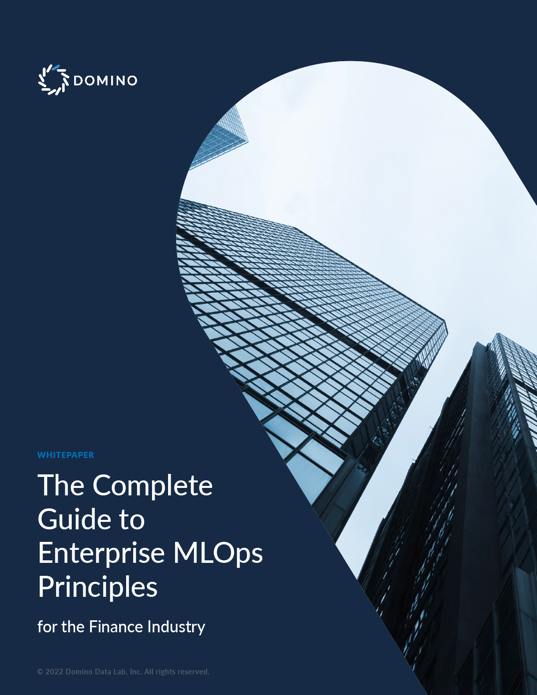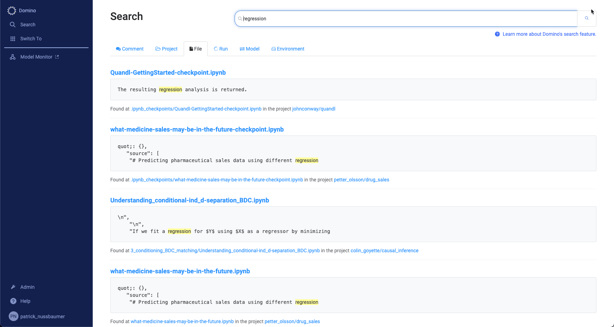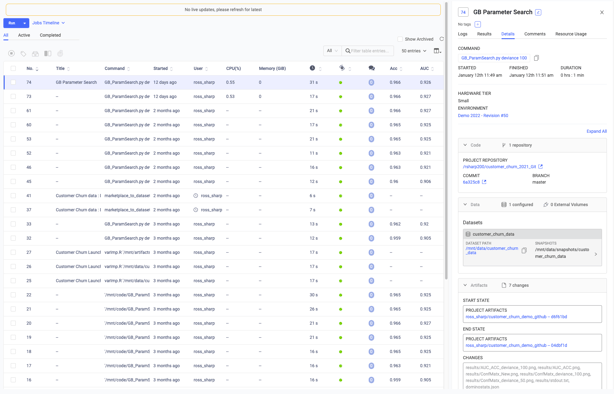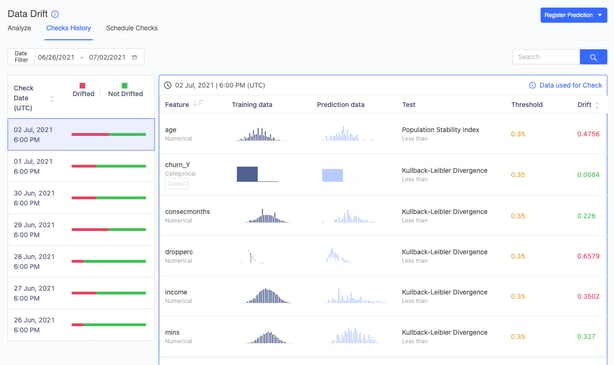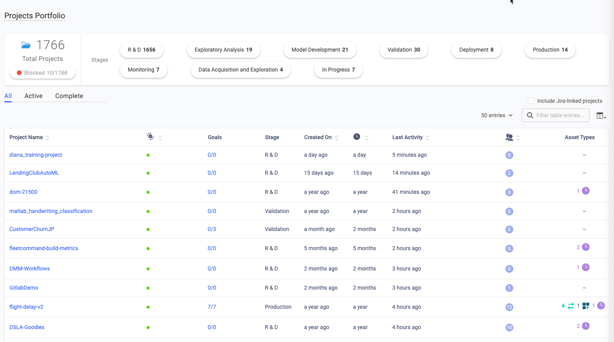
Manage model risk
Automate and standardize processes to holistically manage risk
Domino helps you manage and streamline the end-to-end process for building a model, from idea to impact to validation while mitigating risks.
Benefits:
- Easily see relevant model management and validation workflow information.
- Centrally communicate model risk information to internal and external stakeholders.
- Codify and standardize risk, data science, IT, audit, and compliance processes.
